
Campus protests: This could be the moment when Israel loses the West
David Hearst
The Tet Offensive, a surprise attack launched by the Viet Cong and the North Vietnamese People’s Army of Vietnam in January 1968, was a military failure.
It was designed to spark an insurrection in South Vietnam that never ignited. After the initial shock, the South Vietnamese army and the US forces regrouped and inflicted heavy losses on the Viet Cong’s best troops.
But it had a major consequence on the Vietnam War.
General Tran Do, the North’s commander at the battle of Huế, recalled: “In all honesty, we didn’t achieve our main objective, which was to spur uprisings throughout the South. Still, we inflicted heavy casualties on the Americans and their puppets, and this was a big gain for us. As for making an impact in the United States, it had not been our intention – but it turned out to be a fortunate result.”
The Tet Offensive proved a tipping point in America’s support for the war.
The Pentagon came under unprecedented criticism for its optimistic assessment of the course of the war and while the Viet Cong lost 30,000 troops, the US suffered 11,780 losses in the following year, proving the North’s military resilience.
A large credibility gap opened up between then US President Lyndon B Johnson (LBJ) and public opinion. LBJ himself lost faith in his military leadership and replaced it.
In 1968, Columbia University became one of the epicentres of anti-war protest, spurred on by Columbia University’s ties to the defence industry. Students occupied five buildings and took its dean, Henry Coleman, hostage for 36 hours. There is an iconic image of a student smoking a cigar in his office.
The police were called in. There were hundreds of student arrests, injuries, a strike and then resignation of Columbia’s president, Grayson Kirk. Anti-war protests reached a climax outside the Democratic National Convention in Chicago and were later seen as one of reasons for the election of Richard Nixon.
In the meantime, the anti-war movement had spread like wildfire around the world.
There was a major demonstration in West Berlin. Vietnam was one of the sparks behind weeks of street fighting around the worker and student uprising of May 1968 in Paris and across France. To this day, bullet holes in the Marais in Paris can be seen.
The May 68 protest movement was short-lived politically. The insurrection in Paris lasted only ten weeks, although at one point the Elysee felt so close to losing control that its incumbent President De Gaulle fled the country.
The French president sheltered in the warm embrace of Nato. Where else would he go? He fled to the HQ of the French Army stationed in Germany alongside its Nato allies.
The next day, half a million workers marched through Paris chanting “Adieu de Gaulle”. De Gaulle recovered to win the next election, but the shock of the news was profound. It changed a whole generation in France.
1968 today
The parallels between 1968’s protest movement against the Vietnam war and today’s global protest against the Gaza War are many.
Like the Tet Offensive, the mass prison breakout of Gaza, engineered by al-Qassam Brigades on 7 October, went out of control within hours. This was caused in part by the unexpectedly rapid collapse of the Israeli army’s Gaza Brigade in southern Israel.
Once again, Columbia has been at the centre of the revolt, with an encampment protesting Israel’s assault sparking a wave of similar actions on college campuses across the US.
An attack against military targets, in which hundreds of Israeli soldiers were killed, turned into a series of massacres against civilians, either kibbutzniks or the music festival-goers that Hamas and other groups rampaging over the border stumbled across. In the words of one Gulf state official, the attack on 7 October was the mother of all miscalculations.
But the Israeli response, a seven-months-long demolition job on Gaza, a genocidal campaign against every citizen and family in the strip regardless of their affiliation, the destruction of their houses, hospitals, schools, universities, has proved a turning point in world opinion.
Once again, support for this war is provided by a Democrat US president in an election year. Once again, Columbia has been at the centre of the revolt, with an encampment protesting Israel’s assault sparking a wave of similar actions on college campuses across the US.
Columbia, Yale, and Harvard are all in the crosshairs of this student revolt because of the universities’ ties with Israel.
At Columbia, students are demanding the university end its investments in the tech giants Amazon and Google which have a $1.2bn cloud computing contract with the government in Tel Aviv.
At Yale, students are demanding the university divest from “all weapons manufacturing companies contributing to Israel’s assault on Palestine”. Yale has exchange students with seven Israeli universities. Harvard has programmed with three of these universities, while Columbia has relations with four of them.
As in 1968, many of these protests have been met by force. Columbia President Nemat Minouche Shafik ordered the NYPD to disperse the encampment of 50 tents on the South Lawn, which led to the arrest of 100 Columbia and Barnard College students, including the daughter of US Congresswoman Ilhan Omar.
The students were also suspended from school and told they would not be able to finish their academic semester. At Yale, 50 protesters were arrested on charges of “aggravated trespassing”. At Ohio, demonstrators were beaten and tasered. Nearly 900 protesters have been arrested nationwide since the original confrontation at Columbia on 18 April.
None of this is new.
In 1970 the Ohio National Guard opened fire on protesters killing four and wounding nine students in what became known as the Kent State Massacre. Then as now, police brutality against students has only caused the protest to spread.
Hours after the administration shut down an encampment at Princeton, hundreds of students occupied a central courtyard, bringing books, laptops and blank canvases to set up a “Popular University for Gaza”. Faculty members joined in, leading teach-ins and discussions.
Police have been called into 15 universities across the US, and there are protests in a further 22 other universities and colleges.
The US protests have spread to British universities, although they have received less media attention.
At Trinity College, Cambridge, the portrait of Lord Balfour, the British foreign secretary responsible for a statement recognising the right of Jews to a homeland in Palestine, was defaced and slashed before being removed by the university.
London has just seen its 13th national demonstration since the war began. The protests against the war in Gaza, in their persistence and size, are only matched by the million-plus demonstration against Tony Blair’s decision to invade Iraq, which in 2003 was the biggest of its kind.
The protest movement is having a deep effect on Gaza itself because for once the Palestinian people enduring this onslaught do not feel they are on their own.
Palestinian journalist and content creator Bisan Owda said: “Keep going because you’re our only hope. And we promise we will hold our ground and tell you the truth always. And please don’t let their violence scare you. They don’t have any other options but to silence and terrify you because you are demolishing decades of brainwashing.”
Zionism is the target
Owda is right. If the targets of 1968 protest movement were the Pentagon, or the repressive paternalism of the Gaullist state, the targets today are Zionism and Israel’s armourers in the US, the UK, and Germany.
This is the pro-Israel lobby libelling and smearing politicians as antisemitic for their support of Palestine. They are the ones causing gutless and panicky universities to kick lecturers out of their jobs. They see themselves as democrats but their hands are deep in the toolkit of fascists. They endanger the rule of law, free speech and the right to protest.
Spearheading the revolt against Zionism is a new generation of Jews who are turning up in increasing numbers at these protests.
One student at Columbia and two at Barnard explained why: “We chose to be arrested in the movement for Palestinian liberation because we are inspired by our Jewish ancestors who fought for freedom 4,000 years ago. When the police entered our encampment, we locked arms and sang Civil Rights era songs that many of our more recent ancestors recited in the 1960s. We belong to the legacy of progressive Jewish activism that has worked across race, class and religious lines to transform our communities.
The Jews amongst them are horrified by what is being done in their name. Horrified by how their religion has been morphed into an apology for ethnic cleansing
“The arrest and brutalization of over 100 pro-Palestinian Columbia students is the worst act of violence on our campus in decades. The moment Columbia asked the NYPD to arrest hundreds of student protestors, our university normalized a culture in which political differences are met with violence and hostility… As we write this, Israeli students passing by call us ‘animals’ in Hebrew because they think none of us will understand – reminiscent of Israeli Defense Minister Yoav Gallant’s remarks that Palestinians in Gaza are ‘human animals'”.
The Gaza war is causing an unprecedented debate among Jewry, with leading intellectuals like the Canadian journalist Naomi Klein arguing that Zionism is a “is a false idol that has taken the idea of the promised land and turned it into a deed of sale for a militaristic ethnostate”.
Klein wrote: “From the start it has produced an ugly kind of freedom that saw Palestinian children not as human beings but as demographic threats – much as the pharaoh in the Book of Exodus feared the growing population of Israelites, and thus ordered the death of their sons.
“Zionism has brought us to our present moment of cataclysm and it is time that we said clearly: it has always been leading us here. It is a false idol that has led far too many of our own people down a deeply immoral path that now has them justifying the shredding of core commandments: thou shalt not kill. Thou shalt not steal. Thou shalt not covet.”
Palestine is everywhere
These events will not be without their consequences.
In the immediate future, the anti-Gaza war movement has revived the Palestinian national cause as never before. Fading graffiti commemorating Fatah and PLO’s battles in refugee camps in Lebanon have been replaced by bright new symbols celebrating the attack on 7 October. The inverted triangle depicting Hamas parachuting over the barrier in Gaza is everywhere.
Each demonstration around the world is headed by the Palestinian diaspora which has reacted in the opposite way to what was intended by Israel and its supporters. Israeli Prime Minister Benjamin Netanyahu thought that if he killed off the elders, their sons and daughters would forget the struggle.
Instead, Netanyahu has recreated and reinforced the bond of Palestinians everywhere to their lost land. Ask Palestinians in the Jordanian refugee camp of Hitten where their home is, and the overwhelming answer is Gaza or the West Bank.
This wave of support has similarly undone years of planning to disconnect the Palestinian cause from the Arab World. Events helped. The Arab Spring and its suppression, and the civil wars that followed, supplanted Palestine as the main source of news for at least a decade.
Israel’s attempt to bypass the Palestinian national cause by reaching out directly to the richest Gulf states was just about to succeed when Hamas staged its attack.
Seven months later, Palestine is everywhere. All polls show it. Instead Israel itself is in the dock of international justice, under court investigation at both the International Criminal Court, which is about to issue warrants for the arrest of Netanyahu and others, and the International Court of Justice for genocide.
These are the immediate consequences, but there are two long-term consequences which could be far more important.
The first is that for the first time in the history of this conflict, Gaza – both its people and its fighters – are displaying a determination to stand and fight which the PLO and Yasser Arafat never showed.
For the first time in its history, Palestinians have a leadership which will not give up its major demands and which commands their respect.
The second consequence is that a new generation is coming of age in America, the only country that can stop this conflict by withdrawing its military, political and economic support for Israel. It is still now the only country that Israel listens to and takes seriously.
The Jews amongst them are horrified by what is being done in their name. Horrified by how their religion has been morphed into an apology for ethnic cleansing. Horrified by how their proud and painful heritage has been reduced into a licence to kill. Horrified by the power exerted by Israel over the US Congress, UK parliament and every mainstream party in Europe.
Jews are challenging the claim that Zionism owns their narrative. For this they are variously accused of being traitors, “Kapos” (the Jews assigned by the Nazi SS to supervise forced labour), self-hating, or simply “animals”. But for me they are the biggest single source of hope in this bleak landscape.
The Vietnam War was to last another seven years after the Tet offensive. And Israel’s occupation of Gaza will not be easily ended.
But we could well have reached the tipping point in support for Israel in the US, UK and Europe and this is of historic significance.
The views expressed in this article belong to the author and do not necessarily reflect the editorial policy of Middle East Eye.



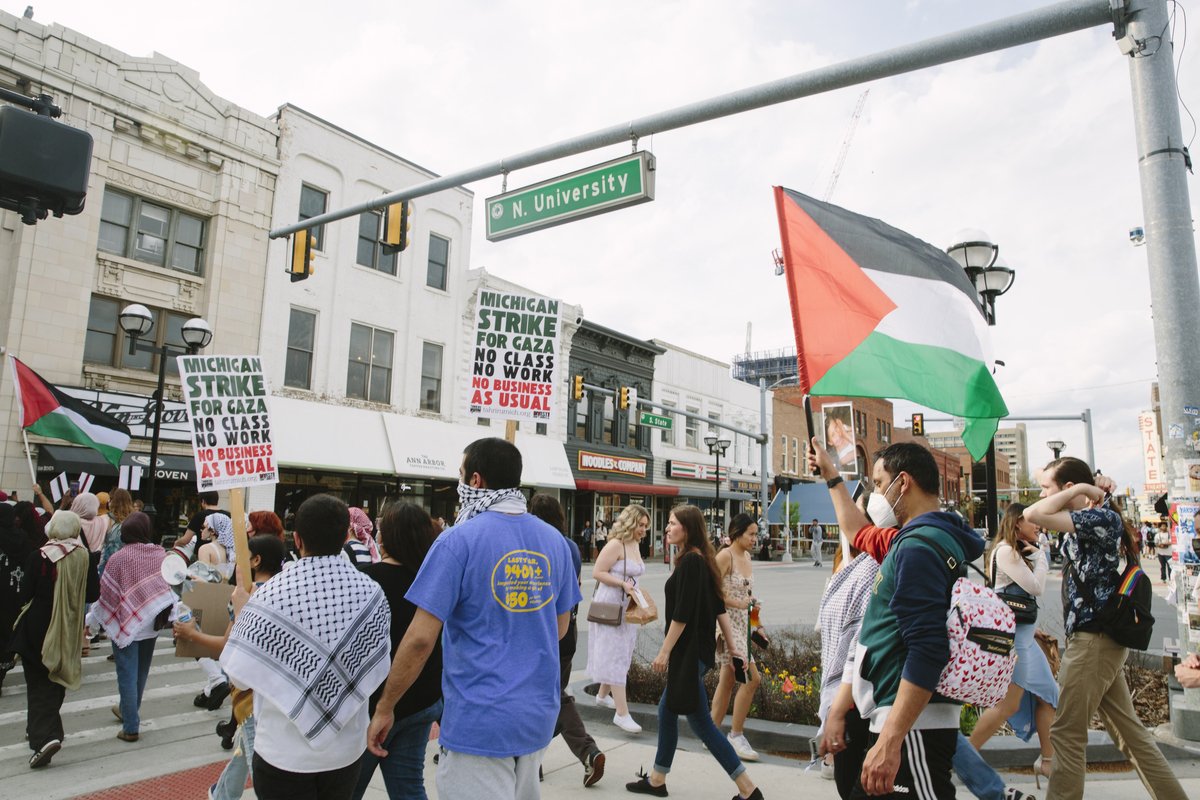





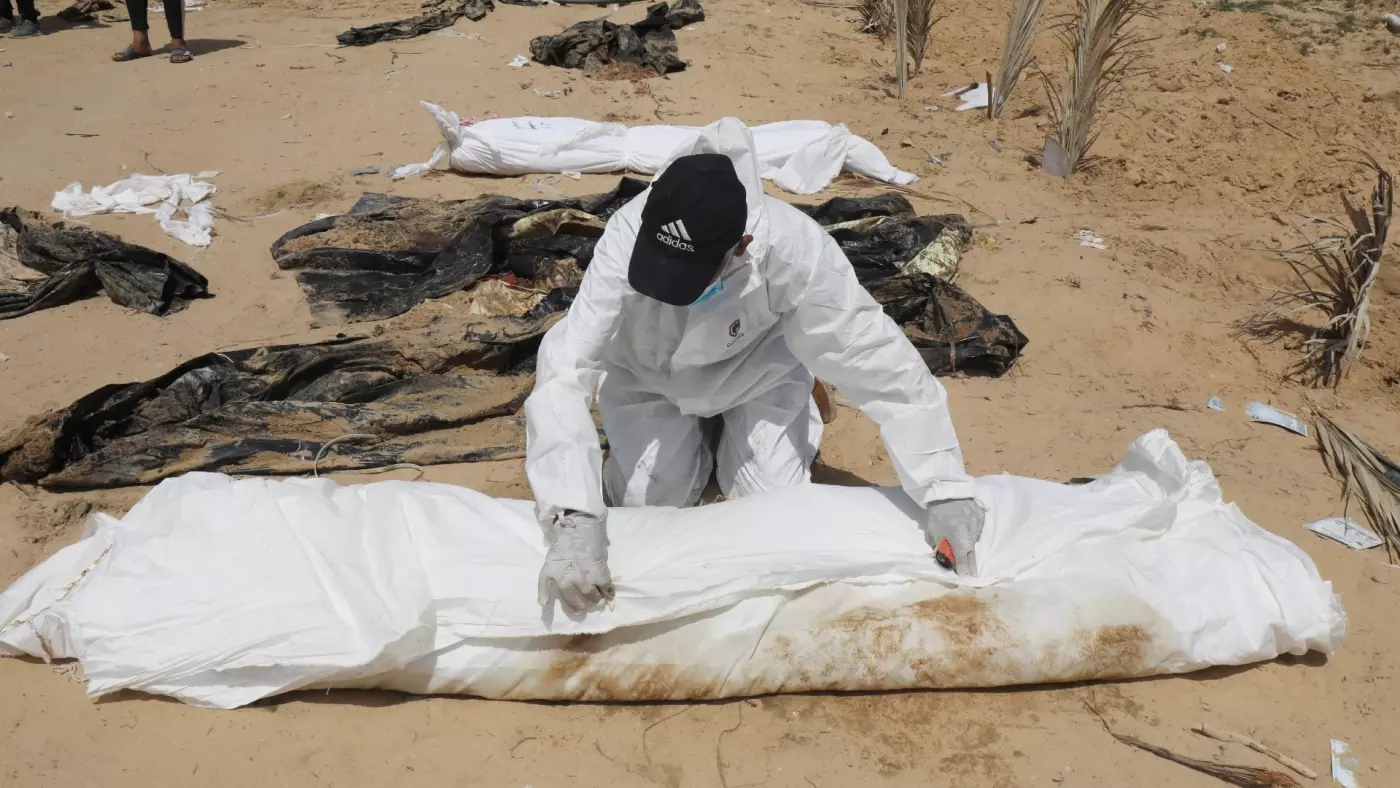

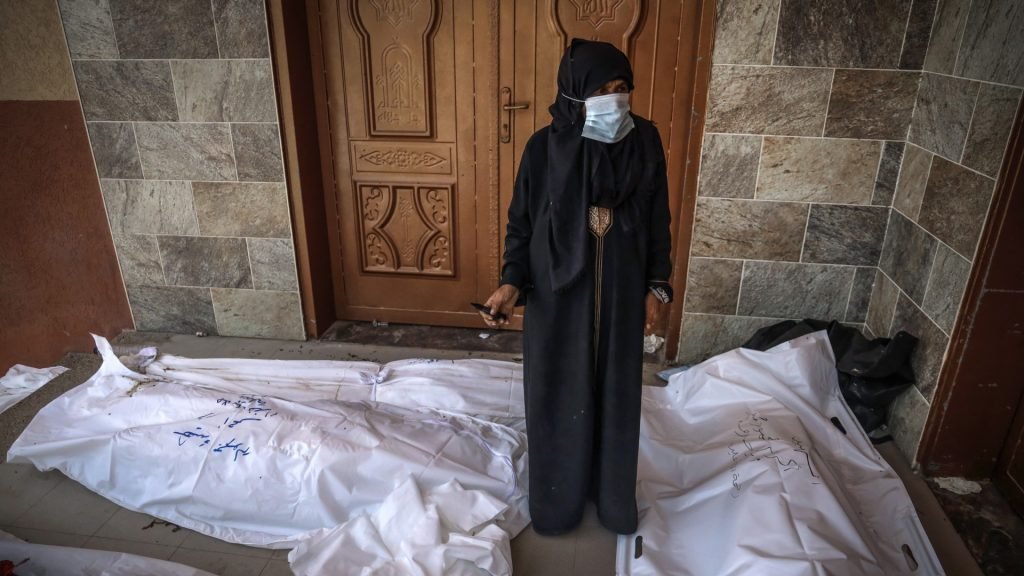


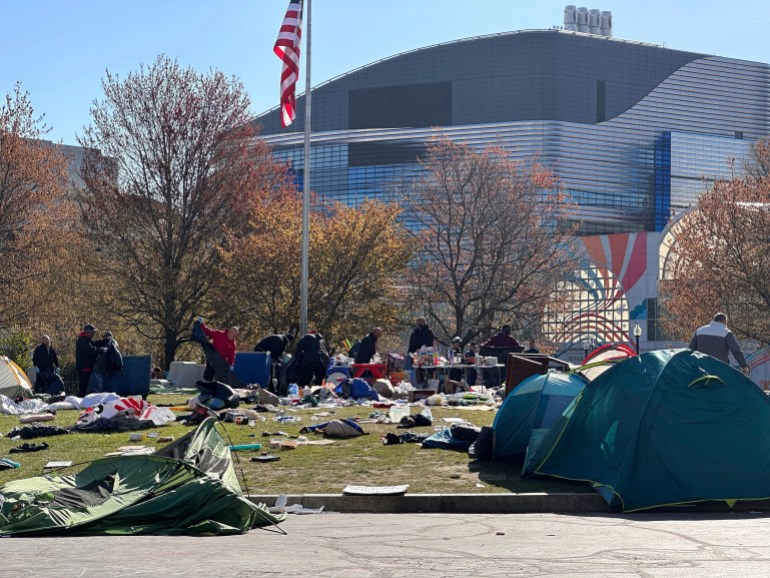
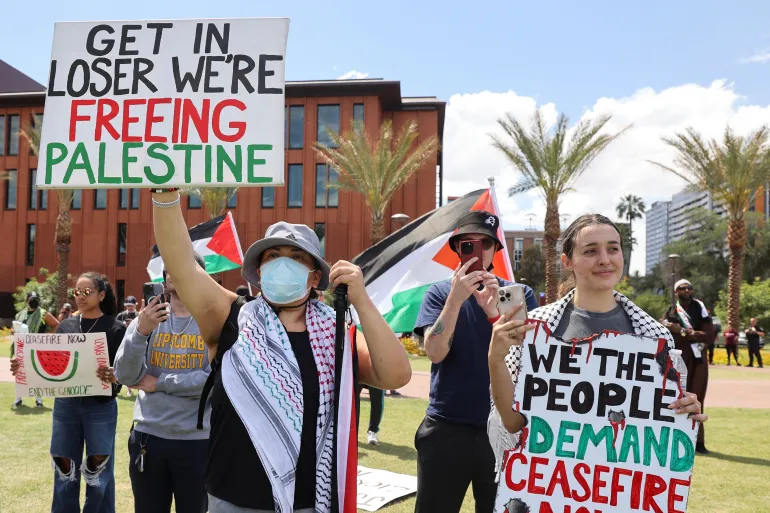
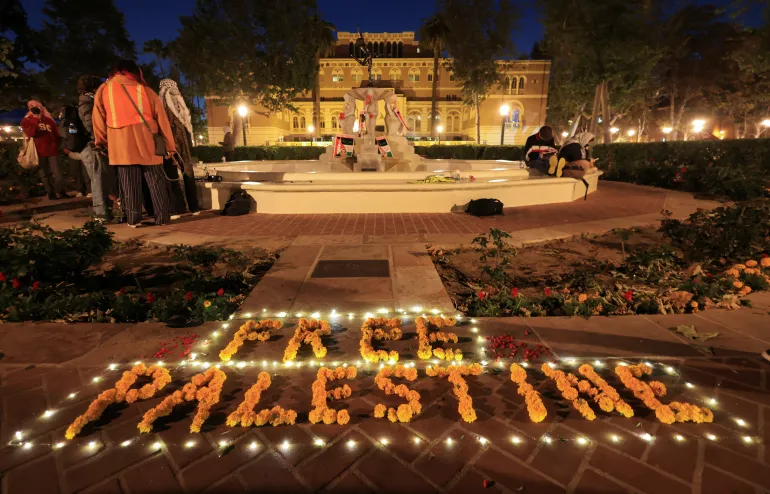
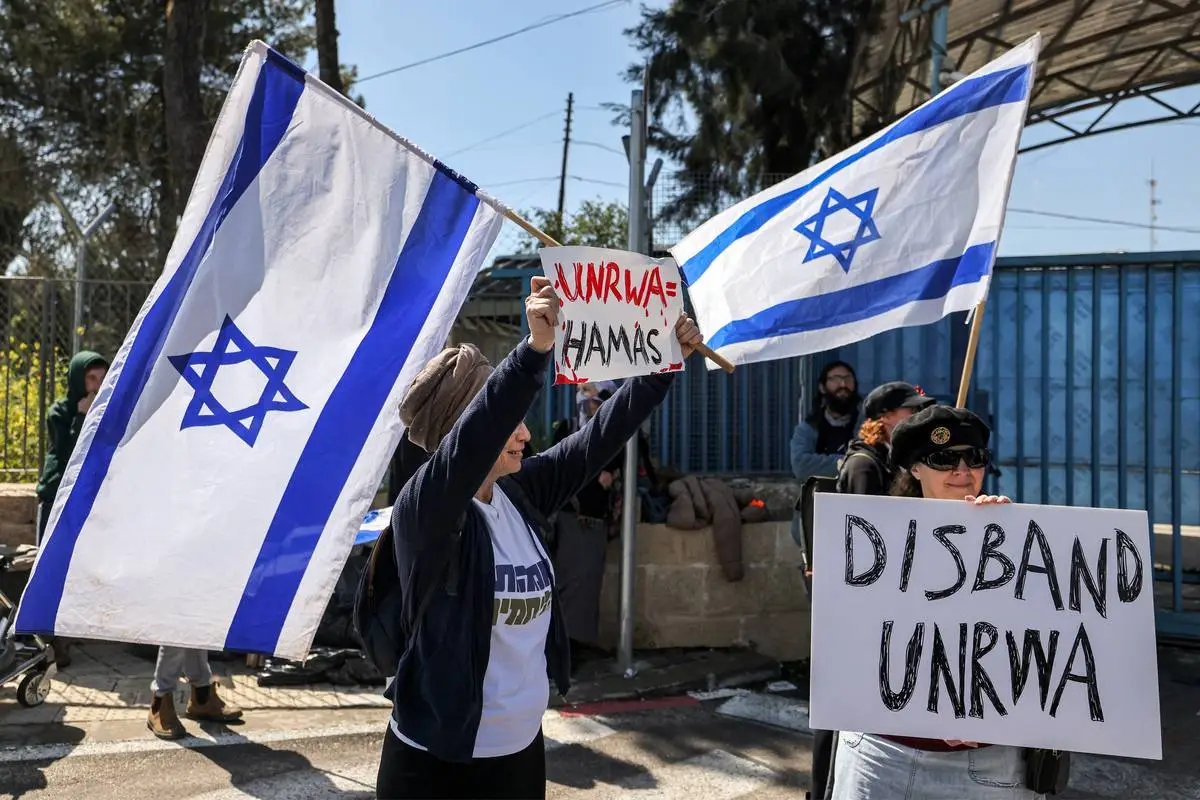
![Palestinians in Gaza see UNRWA funding cuts as 'death sentence' - Cartoon [Sabaaneh/Middle East Monitor]](https://i0.wp.com/www.middleeastmonitor.com/wp-content/uploads/2024/02/IMG_8270.jpeg?resize=500%2C310&ssl=1)
